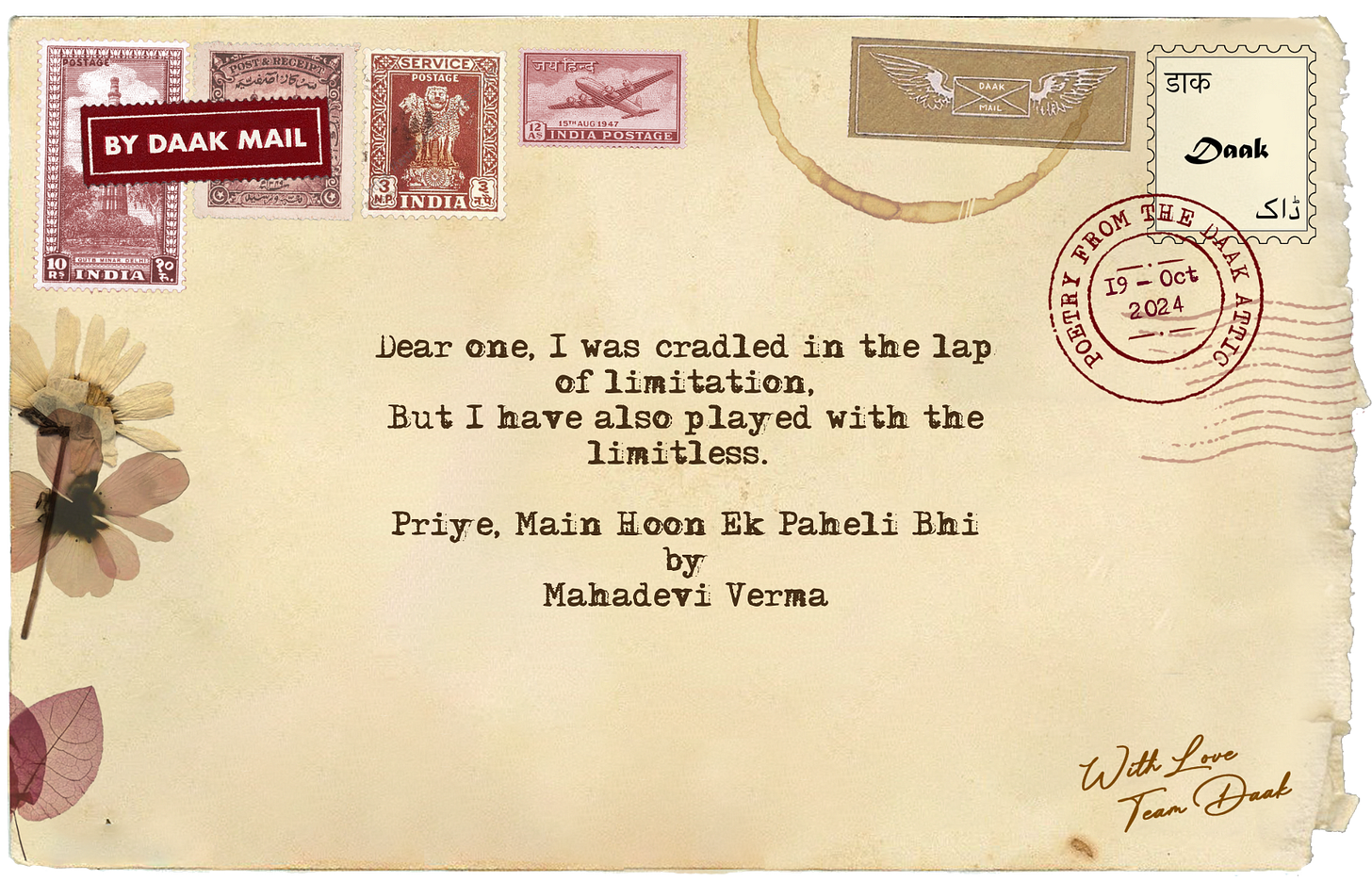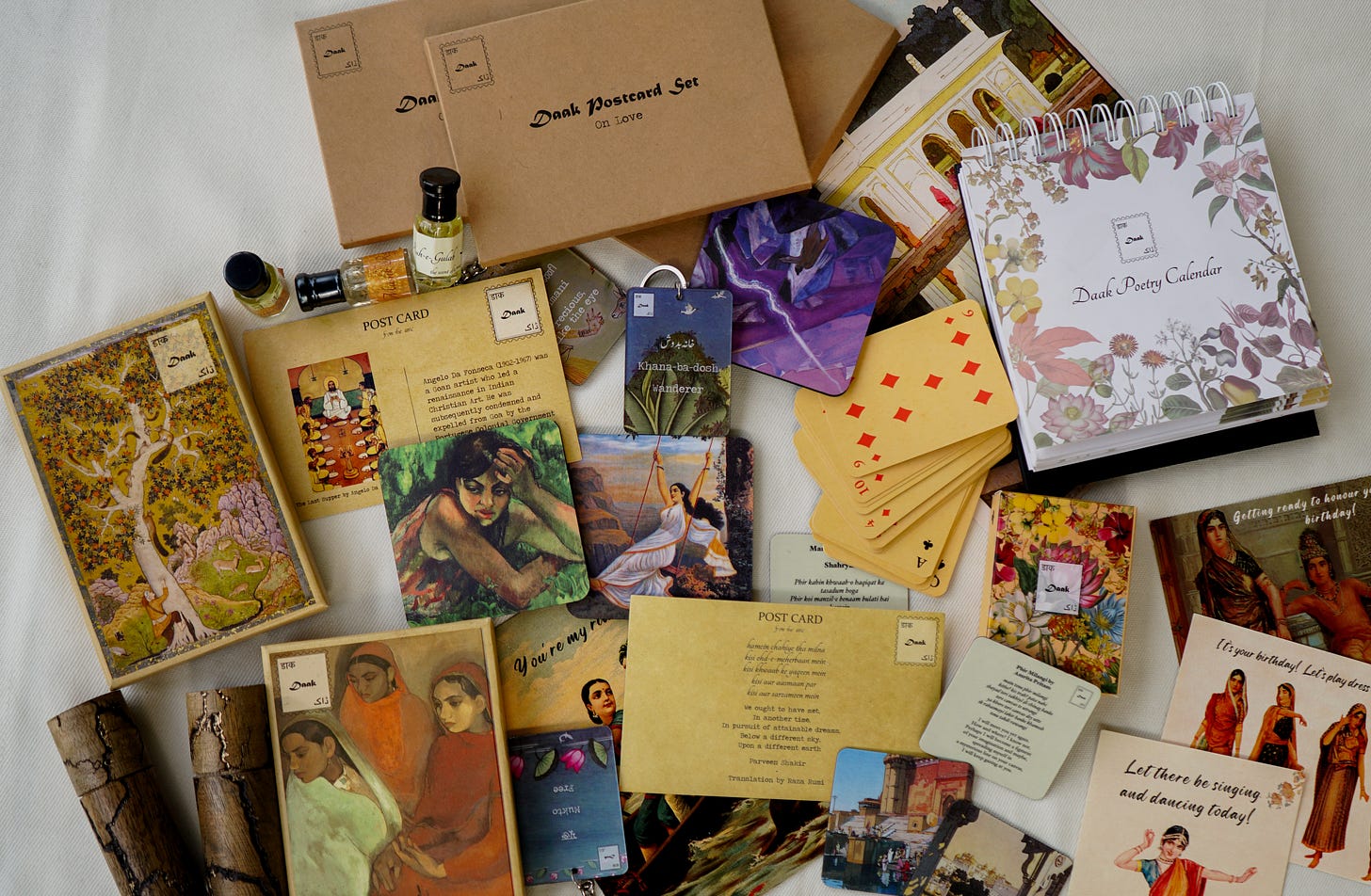Over the course of my adult life, I’ve heard many well-meaning men say that they prefer “natural” women, meaning, of course, that they prefer a woman who looks effortlessly yet conventionally beautiful. But this is about more than looks. Feminist scholar Nivedita Menon talked about the phenomenon of nude lipstick (comparable to the no-makeup makeup) where a woman spends hours on her face in order to make it look like she hasn’t touched it at all. She compared it to the silent repetition of the social behaviours that produce the phenomenon of womanhood, keeping the complexity and difficulty of performing these behaviours hidden behind a presentable face.
To me, feminism is the work of unpeeling this face and making the invisible visible. Thankfully, we have women poets who, with their brilliance and eloquence, have made this invisible experience of being a woman visible. I find Eunice de Souza’s poems particularly comforting, especially on days when I feel inadequate or off-track. In her razor-sharp, no-nonsense style, she articulates a fiercely independent code of survival that defies convention. Her poetry not only invites but celebrates all misfits — not just unruly women, but also boisterous children and snarky adults who resist being moulded into the mundane. Her reflections on crushing childhood injustices that taught her the art of survival often give me hope and strength.
In contrast to the more contemporary style of de Souza, I also love the poetry of Mahadevi Verma. With all the characteristic romance and drama of the Chayavad moment, she talks about the roadblocks in her own life and her renewed sense of purpose at each setback. The modernity and relevance of her voice are painfully obvious in light of the personal and professional battles that women continue to fight even today. What is striking to me is the co-existence of contradictions: sweetness mingled with sadness, laughter juxtaposed with ferocity, ambition overlapping with longing.
Feminism is often mistaken for aggression towards men or antipathy to tradition. Hopefully, these poets illuminate that, at its core, feminism is only about the right to choose, to exist as one’s true self, and to have that be enough.
On behalf of Onaiza and myself, a very Happy Women’s Day to all the lovely women in our community.
Love,
Prachi
PS - did you know that you can search and filter posts on our website by different topics? For example, here’s a selection of posts that talk about “womanhood.”
We have a range of gifts that honour and celebrate women - check them out!





